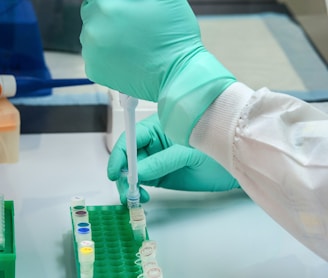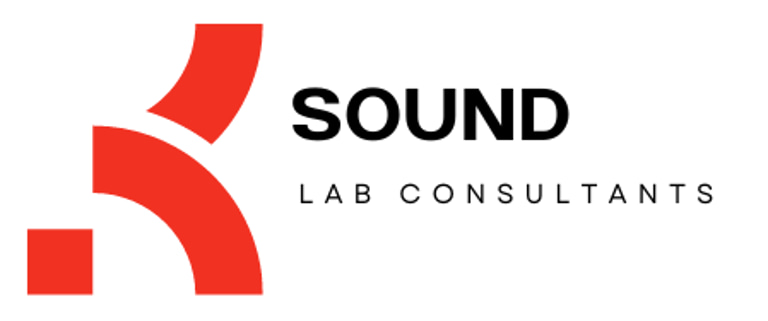Navigating the Medical Laboratory Landscape: Licenses, Resumes, Regulations, and Beyond
The world of medical laboratory technology is a complex and multifaceted field that plays a crucial role in modern healthcare. From conducting diagnostic tests to providing accurate and timely results, medical laboratory technicians and technologists are integral members of the healthcare team. This comprehensive blog aims to explore various aspects of the medical laboratory landscape, from licensure and resumes to regulations and reimbursement. We will dive deep into the keywords provided to shed light on the intricate web of information that forms the backbone of this profession.
Linda Edwardson
8/31/20233 min read


Title: Navigating the Medical Laboratory Landscape: Licenses, Resumes, Regulations, and Beyond
Introduction
The world of medical laboratory technology is a complex and multifaceted field that plays a crucial role in modern healthcare. From conducting diagnostic tests to providing accurate and timely results, medical laboratory technicians and technologists are integral members of the healthcare team. This comprehensive blog aims to explore various aspects of the medical laboratory landscape, from licensure and resumes to regulations and reimbursement. We will dive deep into the keywords provided to shed light on the intricate web of information that forms the backbone of this profession.
I. Medical Laboratory Technician and Technologist Licensure
Obtaining the appropriate licensure is a fundamental step for medical laboratory technicians (MLTs) and medical laboratory technologists (MLTs). Licenses ensure that professionals are qualified to perform a wide range of diagnostic tests and procedures. The requirements for licensure can vary significantly from state to state.
For instance, individuals seeking a medical laboratory technician license in California must meet specific educational and training criteria outlined by the state's Department of Public Health. On the other hand, states like Nevada, New Jersey, and Hawaii have their own unique prerequisites for licensure. Before pursuing a career as an MLT or MLT, it's essential to thoroughly research the licensure requirements in the state you wish to practice in.
II. Crafting an Effective Medical Laboratory Technician Resume
A strong resume is crucial when applying for positions as a medical laboratory technician. This document showcases your skills, education, and experience, providing potential employers with a snapshot of your qualifications. When creating your resume, consider the following tips:
Clear Format: Organize your resume with clear headings such as "Education," "Work Experience," and "Skills." Use bullet points for easy readability.
Relevant Experience: Highlight your relevant work experience, including any internships, clinical rotations, or previous jobs in the medical field.
Educational Background: Clearly state your educational achievements, including your degree and the institution you attended.
Skills: List technical skills, such as proficiency in using laboratory equipment and performing various tests.
Certifications and Licenses: Include any certifications you hold, such as MLT or MLT licenses.
Keywords: Tailor your resume to the specific job description. Use relevant keywords from the job posting to increase your chances of passing applicant tracking systems.
Quantify Achievements: Whenever possible, use numbers to quantify your achievements. For example, mention the number of tests you performed daily or the accuracy rate you achieved.
Professional Summary: Write a concise summary at the beginning of your resume that highlights your qualifications and career goals.
III. Navigating the Job Market: Medical Laboratory Technician Staffing Agencies and Travel Jobs
Staffing agencies specializing in medical laboratory technician placements can be valuable resources for both job seekers and employers. These agencies connect qualified MLTs and MLTs with temporary, permanent, and travel positions across various healthcare settings. Medical laboratory travel jobs offer the opportunity to work in different locations and gain diverse experience while enjoying competitive compensation and benefits.
IV. Medical Labs for Sale: Starting Your Own Medical Laboratory
Entrepreneurial-minded individuals may consider starting their own medical laboratory. While this is a complex undertaking that requires careful planning, it can be a rewarding venture. Before diving into this field, aspiring lab owners should conduct thorough market research, create a detailed business plan, and navigate the legal and regulatory requirements associated with operating a medical laboratory.
V. Medicare Reimbursement and Billing for Medical Labs
The reimbursement landscape for medical laboratories is intricate, particularly within the Medicare system. The Medicare Clinical Laboratory Fee Schedule determines the reimbursement rates for various laboratory tests. These rates can be influenced by factors such as location and the complexity of the test. Accurate billing and coding are essential to ensure proper reimbursement. Additionally, the "Medically Unlikely Edits" (MUE) system, which limits the number of units billed for certain services, adds an extra layer of complexity to the billing process.
VI. Regulatory Compliance and Quality Assurance
Quality assurance is paramount in medical laboratories to ensure accurate and reliable test results. Labs must adhere to Clinical Laboratory Improvement Amendments (CLIA) regulations, which establish standards for laboratory testing. Moderate and moderately complex CLIA classifications determine the complexity of tests a laboratory can perform and the associated requirements.
VII. The Future of Medical Laboratory Technologists and Technicians
The field of medical laboratory technology is not without its challenges. The projected shortage of medical laboratory technologists and technicians by 2022 is a concern, potentially impacting patient care and diagnostics. Addressing this shortage requires attracting new talent to the field through educational initiatives and promoting the importance of the role.
Conclusion
The world of medical laboratory technology is a dynamic and vital component of modern healthcare. From the intricacies of licensure and crafting effective resumes to navigating the reimbursement landscape and addressing the challenges of the future, medical laboratory technicians and technologists play a critical role in diagnosing and treating patients. As the field continues to evolve, professionals in this domain must stay informed about the latest developments and regulations to provide accurate and high-quality patient care.
